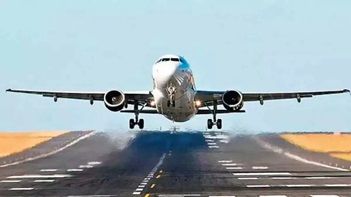The Bureau of Civil Aviation Security (BCAS) in India is ramping up its operational capabilities with plans to fill 122 crucial posts and establish 17 new offices across the country. This strategic move aims to enhance aviation security measures and streamline regulatory oversight in a rapidly evolving air travel landscape.
With the aviation sector poised for significant growth, bolstering security infrastructure becomes paramount to ensure the safety of passengers, crew, and aircraft. BCAS’s initiative to expand its workforce and footprint underscores its commitment to upholding stringent security protocols and adapting to emerging challenges.
The recruitment drive to fill operational positions within BCAS signifies a proactive approach towards addressing staffing gaps and strengthening the organisation’s operational capacity. By augmenting its human resources, BCAS aims to bolster surveillance, intelligence gathering, and enforcement activities, thereby fortifying the aviation security framework.
Furthermore, the establishment of 17 new offices across various regions signifies BCAS’s efforts to decentralise operations and extend its reach to key aviation hubs. This decentralisation strategy is poised to enhance responsiveness to security threats and regulatory compliance issues, facilitating more agile and effective enforcement measures.
BCAS’s expansion plans align with broader objectives to modernise and fortify India’s aviation security apparatus in line with global best practices. By leveraging technology, enhancing training programmes, and fostering collaboration with industry stakeholders, BCAS seeks to stay ahead of evolving threats and ensure a robust security posture across the aviation ecosystem.
The infusion of personnel and infrastructure resources into BCAS reflects a concerted effort to elevate aviation security standards and instil confidence among passengers and stakeholders. As air travel continues to regain momentum post-pandemic, such initiatives play a pivotal role in safeguarding the integrity and resilience of the aviation sector.








